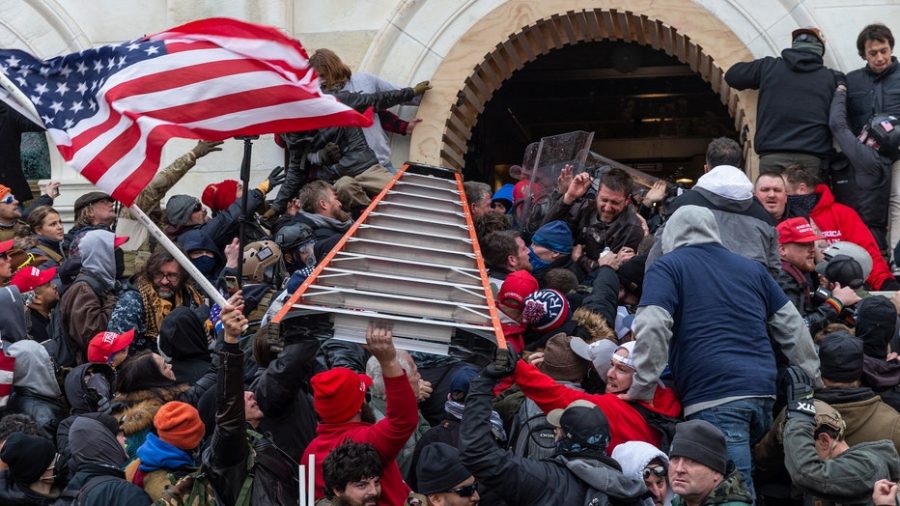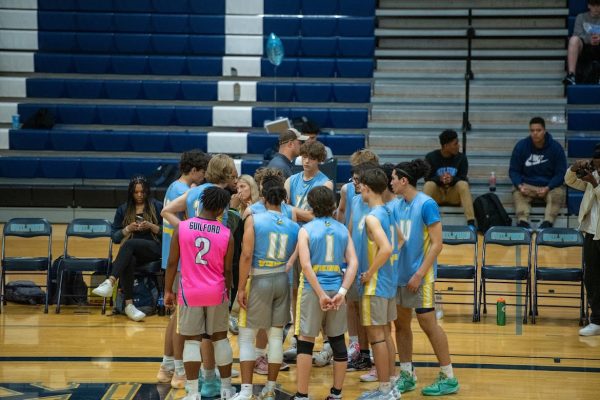January 6: the psychological causes behind a year-long political crisis
On January 6, 2021, Americans watched in astonishment as several hundred people entered the nation’s Capitol building. A year has since passed since the damage, deaths and arrests occurred. While there have not been any more insurrections, there are ongoing trials, and there is still a lot of political tension surrounding the topic.
Mr. Jeff Pitner teaches both regular and AP Psychology. Last year, on January 7, he gave presentations in his classes to talk about the psychology behind the insurrection. He discussed some specific concepts that led to the actions that took place. One such concept is groupthink.
“Groupthink, loosely defined, is the idea that people are pursuing an answer and they want to do it quickly, rather than exhaust all possible options and check all methods of behavior before you go about doing what it is you want to do,” said Mr. Pitner. “Groupthink directly related to a lot of the actions that had happened on January 6.”
On January 6, 2021, former President Donald Trump held a rally in Washington D.C. During his rally, he talked about how he thought the election was unfair and told his supporters that they would all walk down to the Capitol building, where Congress was in session, and make their presence known.
“People went, they had those orders of ‘Go to Congress and let them know that we are unhappy’ and now groupthink enters,” said Mr. Pitner. “They had to decide, as a group of individuals, ‘What do we do? We were told to go there, to let them know that we think you’re the president and that we think this was a faulty election. So on and so forth, but what do we do?’ Some people started acting, and it quickly devolved into ridiculous behaviors.”
Over the course of the past year, claims have been made that the insurrectionists were not supporters of former President Trump, but were actually members of left-leaning organizations, such as ANTIFA, who were paid to make Republicans look bad. The distance between political parties continues to grow, as there is a lack of productive communication between sides.
“We reward ourselves when we cut things out of our life that we disagree with,” said Mr. Pitner. “We no longer enter debate, we no longer enter discussion, we just shut people down and claim that we have won the argument and there’s no further discussion.”
Not only does the political discourse around the insurrection continue to grow, even after a year, but so does the divide between political parties on many other issues. Mr. Pitner believes that there is a way to solve this divide, but it is not an easy solution.
“I feel the issue has consistently been growing further and further into polarization, and that is not something that is going to correct itself until we have some kind of psychological crisis that we have to solve together,” said Mr. Pitner. “Right now, the solution from some of the sides is to ignore anything happening, and some of the other sides are trying to nitpick very minute details and make it something bigger than it really is, so we are at an impasse.”

Hello! My name is Jocelyn Kuntz. I am one of the copy editors for The Voyager this year. I enjoy rollerblading, dancing, Muay Thai, playing piano,...











